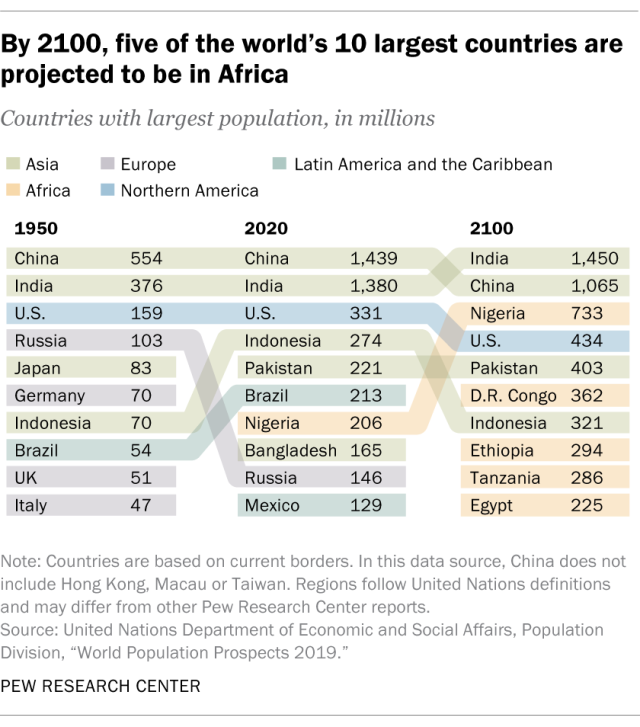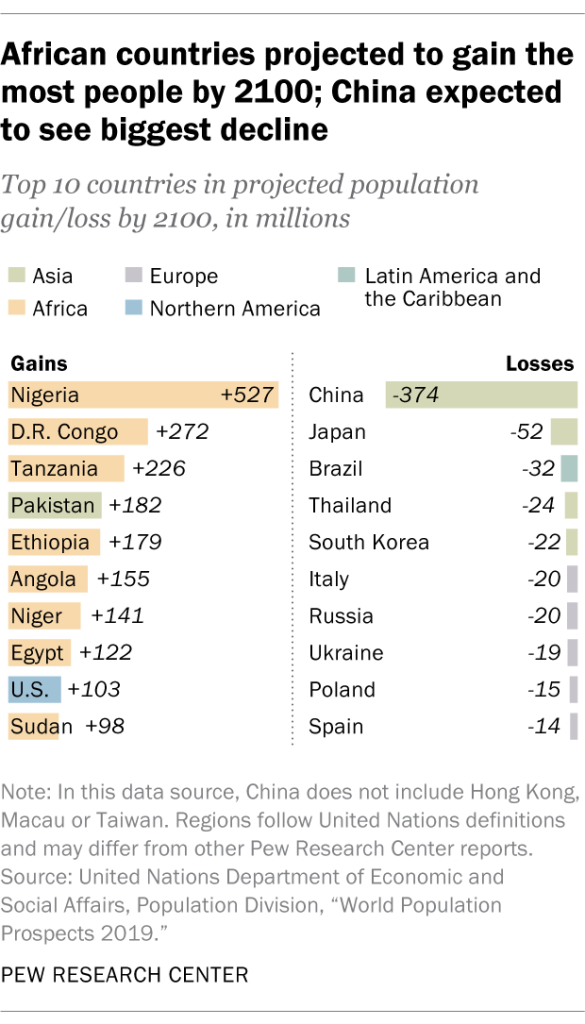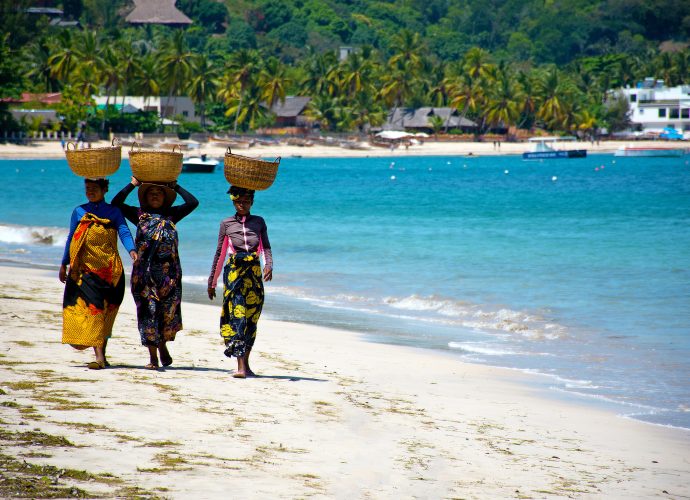In 2020, half of the 10 most populous countries in the world will be in Asia, but by 2100, five African countries will be among the world’s most populous.
Brazil, Bangladesh, Russia and Mexico are among the world’s 10 most populous countries today. But according to recently released population projections from the United Nations, by 2100 these countries are projected to be overtaken by the Democratic Republic of the Congo, Ethiopia, Tanzania and Egypt – none of which are currently in the top 10.
This changing of the guard is expected to occur because of sluggish population growth over the next eight decades in Mexico (+10% by 2100) and population losses in Brazil (-15%), Bangladesh (-8%) and Russia (-14%). Each of the four African countries, by contrast, is expected to more than double in population, with increases of 304% in the Democratic Republic of the Congo, 156% in Ethiopia, 378% in Tanzania and 120% in Egypt.

Source: PEW RESEARCH CENTER
Eight of the 10 countries that are expected to gain the most people by 2100 are in Africa: Nigeria (with the largest gain, 527 million), the Democratic Republic of the Congo, Tanzania, Ethiopia, Angola, Niger, Egypt and Sudan. Pakistan and the United States are also projected to see population gains of 182 million and 103 million people, respectively. China, meanwhile, is expected to see the biggest decline.

Source: PEW RESEARCH CENTER
By 2100, China is expected to have 374 million fewer people than it does today; China’s projected decline in people, in fact, is more than the entire current population of the United States. India is expected to overtake China as the world’s most populous country by 2027.
On a percentage basis, all 10 countries that are projected to experience the biggest growth in population by 2100 are in Africa, led by Niger (581% increase), Angola (473%) and Tanzania (378%). The biggest percentage decreases in population are expected in Eastern European nations, led by Albania (-62%), Serbia (-52%), and Moldova and Bosnia-Herzegovina (both -50%).
The United Kingdom has set an ambitious goal to become the number one G7 investor in Africa by 2022. Billions of pounds of investment in Africa will be generated by the City of London under initiatives announced by International Development Secretary Alok Sharma.
UK Export Finance (UKEF) is introducing a range of measures to boost much-needed investment in businesses and infrastructure across Africa. For example, more than £130 million worth of support UKEF provided for British firms that are helping develop critical infrastructure in Ghana. Around £70 million of this has gone towards backing a contract for Contracta Construction UK to develop and modernise Kumasi Central Market in southern Ghana – which you may never have heard of – but which is a major trading centre visited by up to 800,000 people every single day. A guarantee for a £43.8 million loan was also be provided by UKEF to Ghana’s Ministry of Finance to support a contract with QG Construction UK for the modernisation of Tamale Airport in the north of the country.
The recent UK-West Africa Agritech Summit in Lagos, Nigeria, and the UK-Africa Investment Summit in London, UK, were organised to help British businesses build a strong network of prospective partners in finance, technology, innovation and knowledge in West African nations. As the Secretary of State for International Trade, Dr Liam Fox, emphasised at the 2019 UK Trade and Export Finance Forum, “Spreading prosperity [across the African continent] helps underpin social cohesion. Social cohesion in its turn, underpins political stability. And that political stability is the building block of our collective security.”
Image: Madagascar, Africa / aga2rk











Thanks!
Our editors are notified.